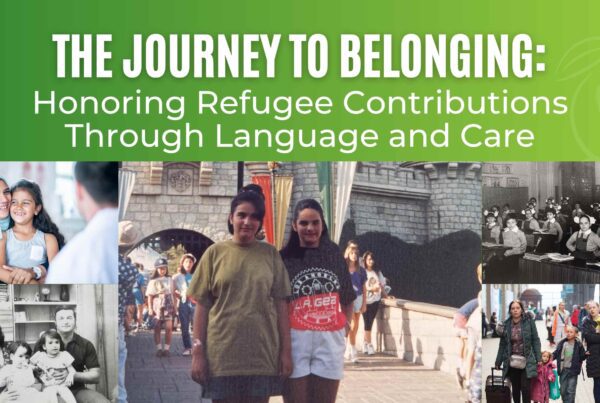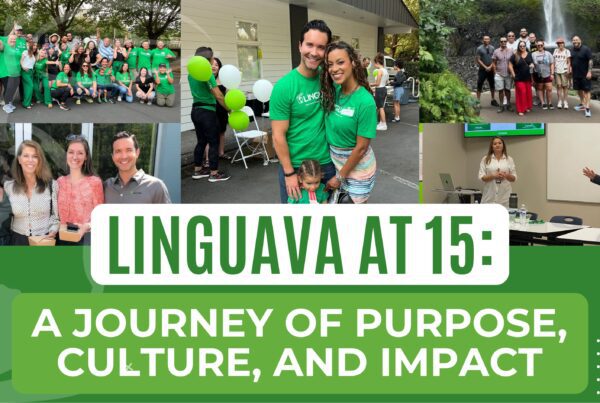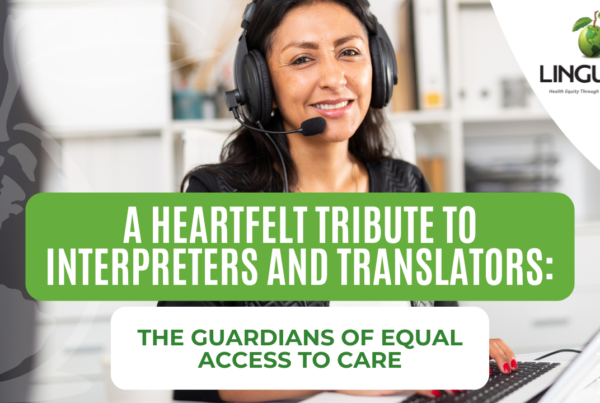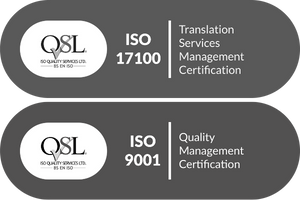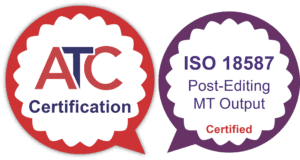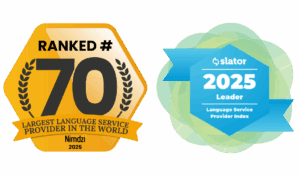Ask anyone at Linguava what makes our company unique, the answer you get is “the people.” Many of our staff have remarkable stories about how they came to the U.S. and were inspired by their backgrounds to pursue a career in the language industry. They understand first-hand the importance of having an interpreter or translator who is both professional and compassionate in any given situation.
Zainab works as a scheduler at Linguava, and part of her job is ensuring a compatible fit for Linguava’s services. Though she has been in the U.S. for a long time, she still remembers the difficulties of moving to a new country and being an interpreter for her parents at a young age.
Zainab’s family moved to Kenya from Somalia during the Somali Civil War before Zainab was born. She grew up in Kenya where she lived in a one bedroom apartment with her seven other family members. “Growing up in Kenya was very hard,” she said. “We didn’t have access to many things, services…My parents’ goal was to make it to the U.S.” Zainab’s parents envisioned a better life for their family in the U.S., but it took around seven years before they could truly call the it home.
“It was a journey of many interviews,” said Zainab. “There’s an agency that sponsors families to come out from places like Kenya to the U.S. It consists of long interviews, medical appointments, very strenuous. And then you get on a flight here with your family and travel across the world.” Zainab and her family came to Portland, Oregon where her grandmother had already been placed at random through an agency sponsorship. Zainab was only seven years old when she arrived in the U.S., but she remembers the transition vividly.
It was hard and stressful because we came to a foreign country and my parents were not much of a help, and they felt helpless, which was hard.
“[They] put a lot of pressure on [the children] to help with things like language services and communication.” Zainab was able to pick up English at a faster rate than her parents, and as result was relied upon to help with translation and interpretation at school and doctor’s appointments. When Zainab was 12 years old, her mother became very ill and Zainab had to step in and interpret for her. “That was very hard for a young child to do,” she recalled.
Reflecting on her experiences growing up with parents who didn’t speak English, Zainab can appreciate the need for professional interpreters and translators like those at Linguava. When she was young, these services weren’t accessible to her parents, but would have been extremely beneficial. Having a professional interpreter at school functions or at doctor’s appointments would have alleviated the pressure on Zainab to interpret such critical information at a young age. “I am passionate about having people have access to interpreters,” she stated. “[And] having the interpreters feel like they are supported, and that the field is important. It’s important that they know that they’re appreciated and valued.”
A really good interpreter is someone who can not only translate words, but translate feelings, non-verbals, [and] that is very transparent in their interpreting.
At Linguava, we are so grateful for the work our staff does to help families like Zainab’s. Zainab has never been a professional interpreter, but her first-hand experience helps her know how to schedule language services for all types of clients. Her background makes her empathetic towards difficult situations, like doctor’s appointments with delicate subject matter. “A really good interpreter is someone who can not only translate words, but translate feelings, non-verbals, [and] that is very transparent in their interpreting,” she said. “Because it’s not fair for the English language deficient person to only get the bare minimum out of the translation. It’s important that they understand non-verbals, everything that the person is trying to communicate.”

